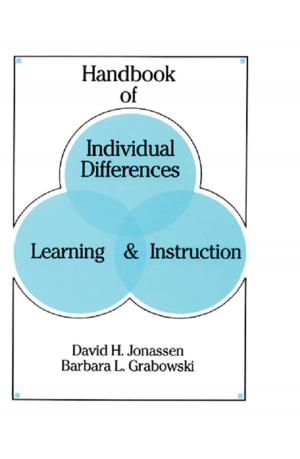Union Learning Representatives
Challenges and Opportunities
Business & Finance, Economics, Development & Growth, Human Resources & Personnel Management, Training| Author: | ISBN: | 9781317966401 | |
| Publisher: | Taylor and Francis | Publication: | October 18, 2013 |
| Imprint: | Routledge | Language: | English |
| Author: | |
| ISBN: | 9781317966401 |
| Publisher: | Taylor and Francis |
| Publication: | October 18, 2013 |
| Imprint: | Routledge |
| Language: | English |
Trade unions have historically been involved in education and training in the workplace. This activity has gained greater credence and importance in the United Kingdom, New Zealand and Denmark due to the recent emergence of union learning representatives (ULRs) and Educational Ambassadors, who are a new category of trained, accredited and unpaid lay representatives based in the workplace. Their key role is to give advice and guidance to colleagues in relation to professional development, learning and training opportunities available.
These representatives work in partnership with other stakeholders, namely employers and education providers to ensure that individuals can attend educational and training courses that will help them from both a personal and work perspective. There are now 22,000 ULRs in the UK alone and they are playing a significant part in pushing the present Labour administration’s drive to expand and improve lifelong learning to create a learning society that benefits individuals, organisations and ultimately the nation and its economy. They have rewritten the rules of the workplace by helping to replace distrust and adversarial relations with partnership working based on mutual respect and trust.
This book was published as a special issue of the Journal of In-Service Education.
Trade unions have historically been involved in education and training in the workplace. This activity has gained greater credence and importance in the United Kingdom, New Zealand and Denmark due to the recent emergence of union learning representatives (ULRs) and Educational Ambassadors, who are a new category of trained, accredited and unpaid lay representatives based in the workplace. Their key role is to give advice and guidance to colleagues in relation to professional development, learning and training opportunities available.
These representatives work in partnership with other stakeholders, namely employers and education providers to ensure that individuals can attend educational and training courses that will help them from both a personal and work perspective. There are now 22,000 ULRs in the UK alone and they are playing a significant part in pushing the present Labour administration’s drive to expand and improve lifelong learning to create a learning society that benefits individuals, organisations and ultimately the nation and its economy. They have rewritten the rules of the workplace by helping to replace distrust and adversarial relations with partnership working based on mutual respect and trust.
This book was published as a special issue of the Journal of In-Service Education.















